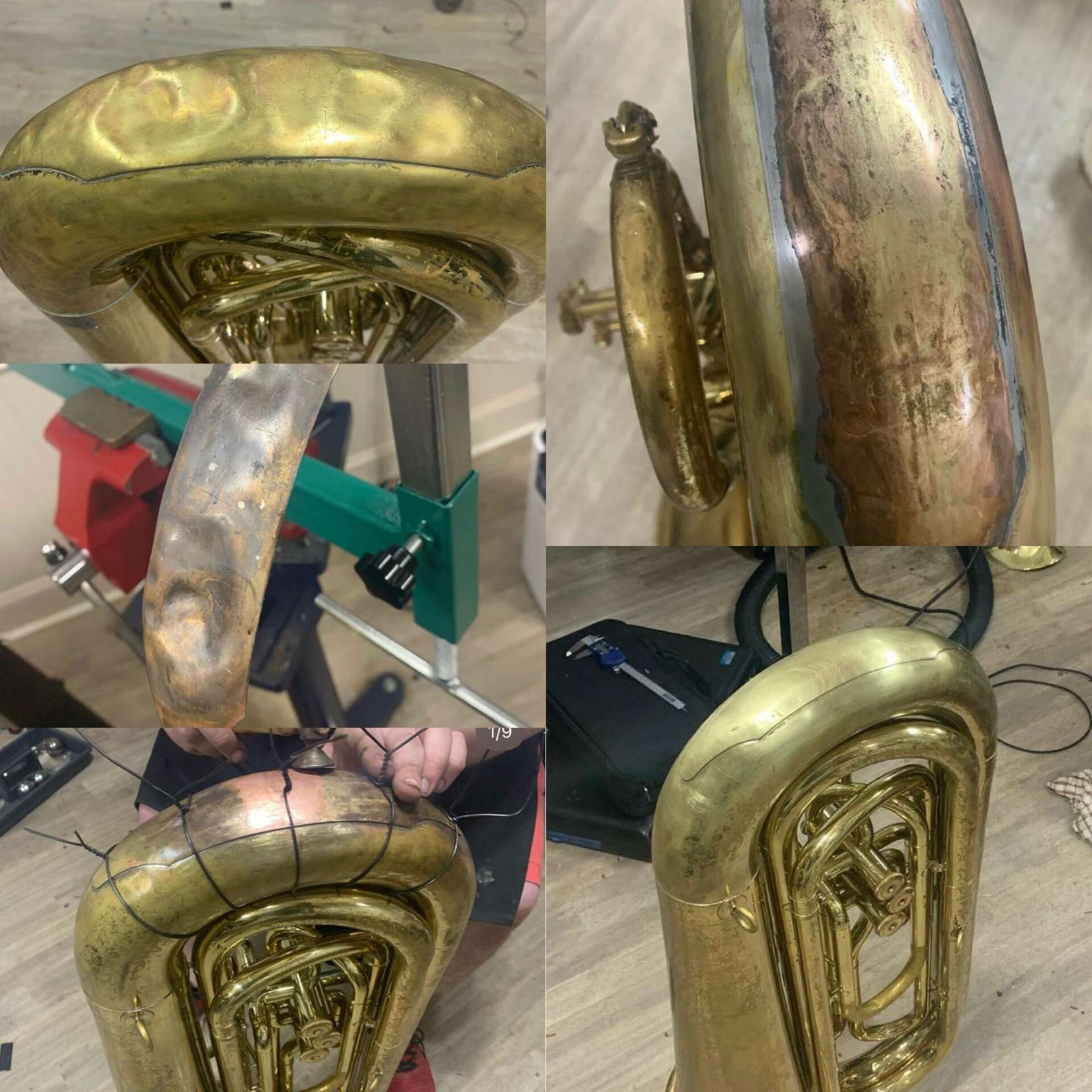We were lucky to catch up with Neil Newcomb recently and have shared our conversation below.
Neil , thanks for taking the time to share your stories with us today How did you learn to do what you do? Knowing what you know now, what could you have done to speed up your learning process? What skills do you think were most essential? What obstacles stood in the way of learning more?
How did you learn to do what you do? I learned instrument repair informally through my work as a freelance musician and educator. I cannot begin to describe the panic and frustration I had as a young, broke musician showing up to a gig when one of my instruments would not function as it should.
As an educator, entire lessons were often derailed by having to try to figure out what was wrong with a student’s horn. At a young age I acquired a text given to me by my future teacher, Wil Grizzle. I studied the text and would “practice” according to the books instructions. I began formally studying repair from various repair techs after I graduated music school and landed a repair job at a local music store, Carere Music; there I learned more on the job while meeting new people and teachers furthering my understanding.
Knowing what you know now, what could you have done to speed up your learning process?
I think seeking out professional organizations such as the National Association of Band Instrument Repair Technicians (NAPBRIT), as well as traveling to other shops/technicians could have helped speed up the process. Every tech practices instrument repair slightly differently, and learning one’s own style is often times derived via mentorship from more experienced craftspeople-what did or did not work out and why?
What skills do you think were most essential?
I am not sure if it is a skill or not, but understanding one’s limits and knowing when to seek help. I often tell my clients “If I do not know the answer, I will find someone who does.” So having realistic expectations for myself.
As far as an employer, having the ability to delegate is paramount. I am a repair tech, musician, and human being. Sometimes the control freak inside of me comes out, and I take on more than I should, instead of relying on my incredibly capable team.
What obstacles stood in the way of learning more?
The biggest obstacles are time and financial limits. There is never enough time to get everything done especially the learning a whole new skill or improving on a super specialized task. Then you run into the capitalistic boundaries that are pervasive in society. How can I manage a shop, learn new skills, and keep the lights on? It is a tricky equation and I am still learning each and every day!


As always, we appreciate you sharing your insights and we’ve got a few more questions for you, but before we get to all of that can you take a minute to introduce yourself and give our readers some of your back background and context?
My name is Neil Newcomb I am the owner of Atlanta ProWinds, a music instrument repair shop/store that specializes in the maintenance and restoration of wind instruments. We also provide guidance for those seeking to improve their gear by relying on the professional musicians and educators in the area. I began my professional work after graduating from with my performance degree in saxophone from Kennesaw State University.
Being around musicians for most of my childhood and young professional life, the one pervading narrative is finding that special mouthpiece, reed, or even valve oil that contributes to producing “the perfect sound’’. I started noticing that the issues my colleagues and myself were experiencing were largely due to poor care or maintenance of the instrument itself.
So after practice, studying, and thousands of failures along the way, I started learning and improving my skills. I apprenticed and acquired a good foundational concept and began providing services.
After a while, I grew a reputation for being knowledgable and it lead to more business. As I grew, I started to realize there was not enough time for me to do everything. So I found like minded individuals and began to expand.
The people who I have hired are all professionals with music degrees on the instruments they repair. They all have incredible experience in the field and know what problems may arise from faulty equipment, as well as the mechanical issues that constantly plague the community. This type of service is unique, especially to the Atlanta area, and I believe it is why people seek us out. We deeply care about the success of our clients regardless of age, education, or experience because we all love making music!



What can society do to ensure an environment that’s helpful to artists and creatives?
Going to concerts is great, but valuing the entire experience is better. Art and music are opportunities to learn and be curious. Artists and patrons all have something in common: humanity. Art is humanity. Make, consume, or donate to preserve our shared humanity.
What do you think is the goal or mission that drives your creative journey?
I would like to see my community and their families have a safe stable environment. Being an artist is difficult. The hours are grueling, and jobs in the arts and related trades are often not the most financially stable careers to go into. I hope the repair service I provide and the music I make helps someone else feel like they have an opportunity to grow while expressing their thoughts and feelings in a nonjudgmental space. As a business owner, I want the best for my team; that means providing employment in a craft that they enjoy, and a return in monetary value to which support their families.
Contact Info:
- Website: www.Atlantaprowinds.com
- Instagram: @Atlantaprowinds
- Facebook: www.facebook.com/atlantaprowinds
Image Credits
Atlanta ProWinds


